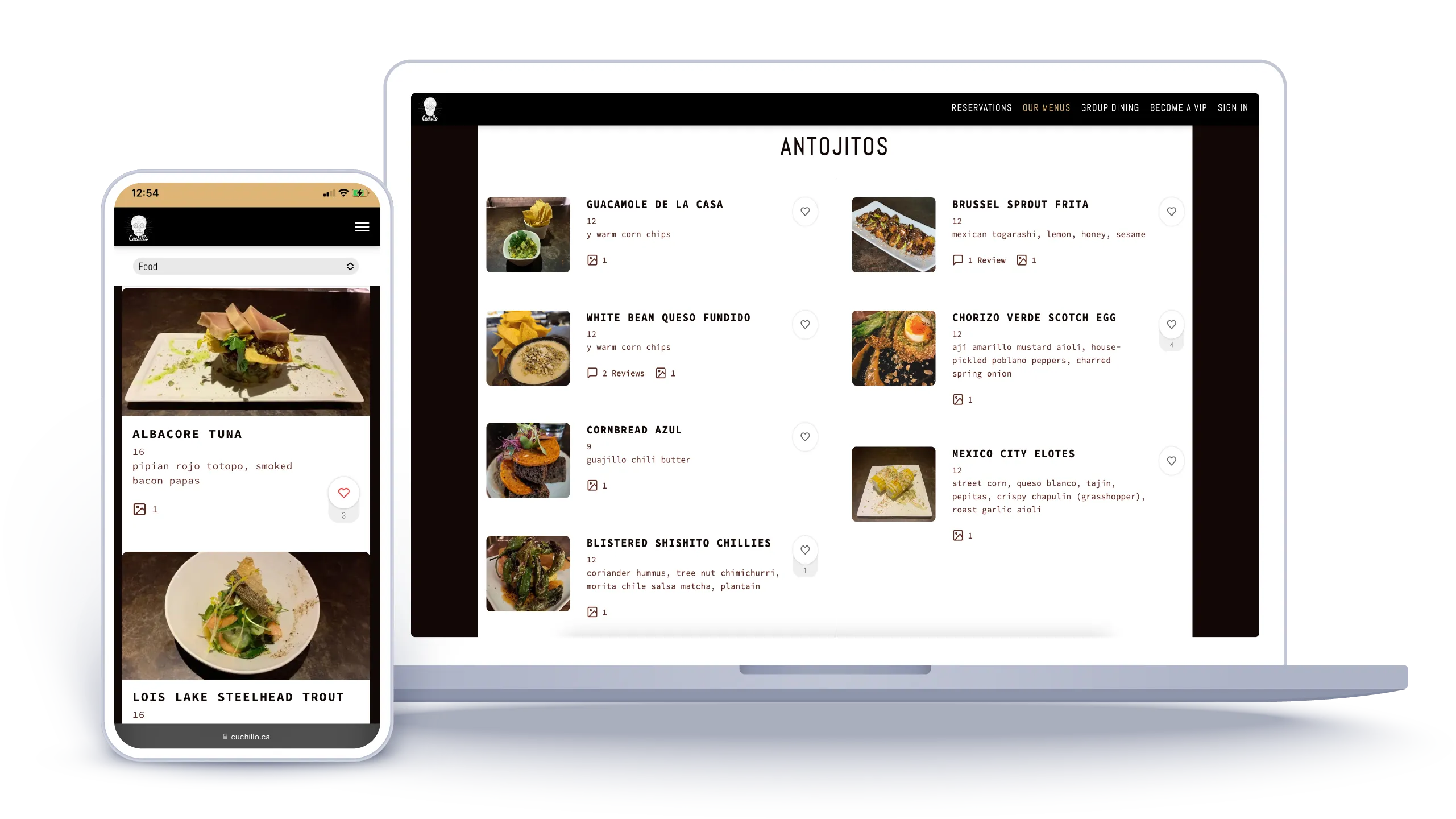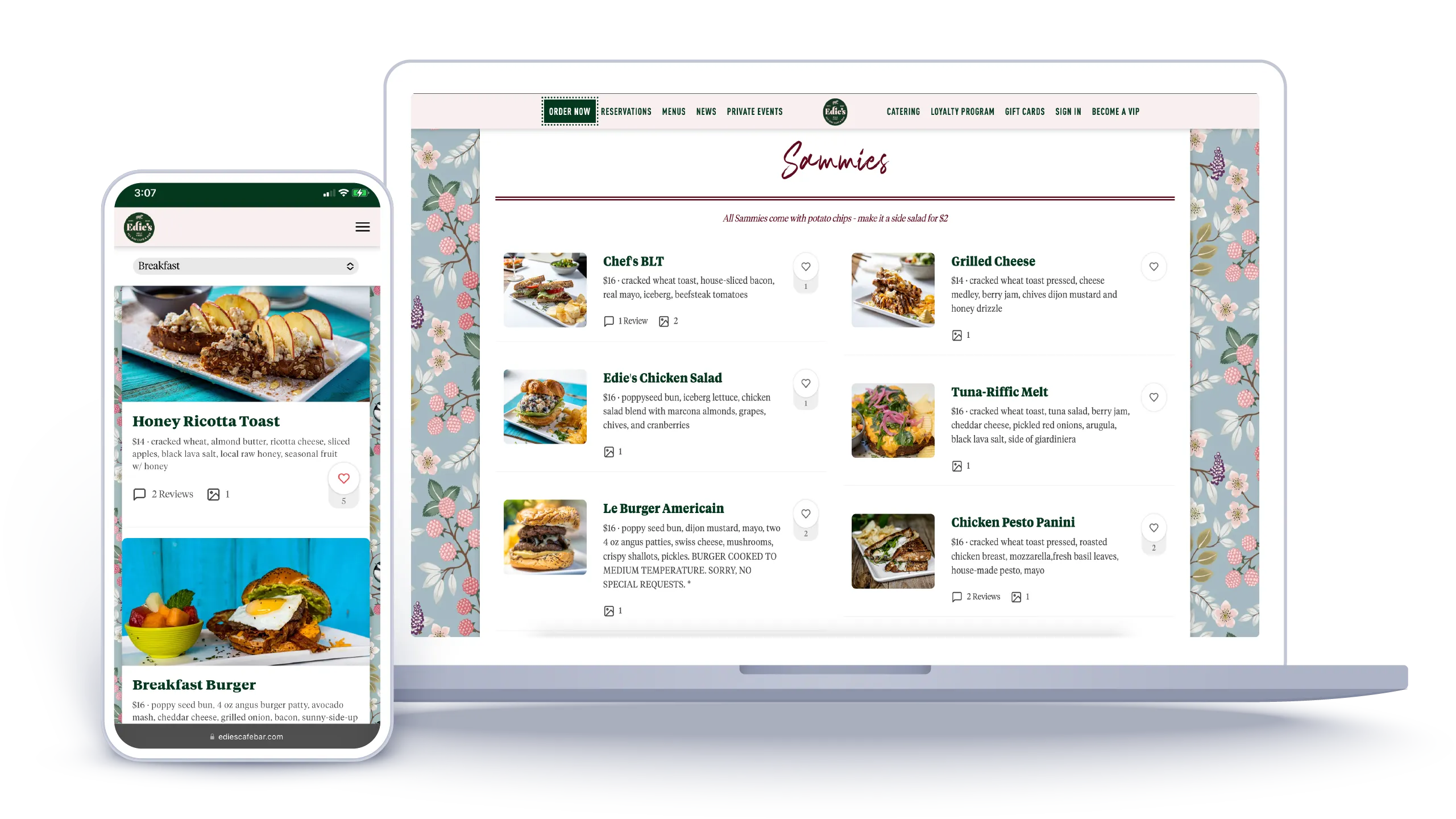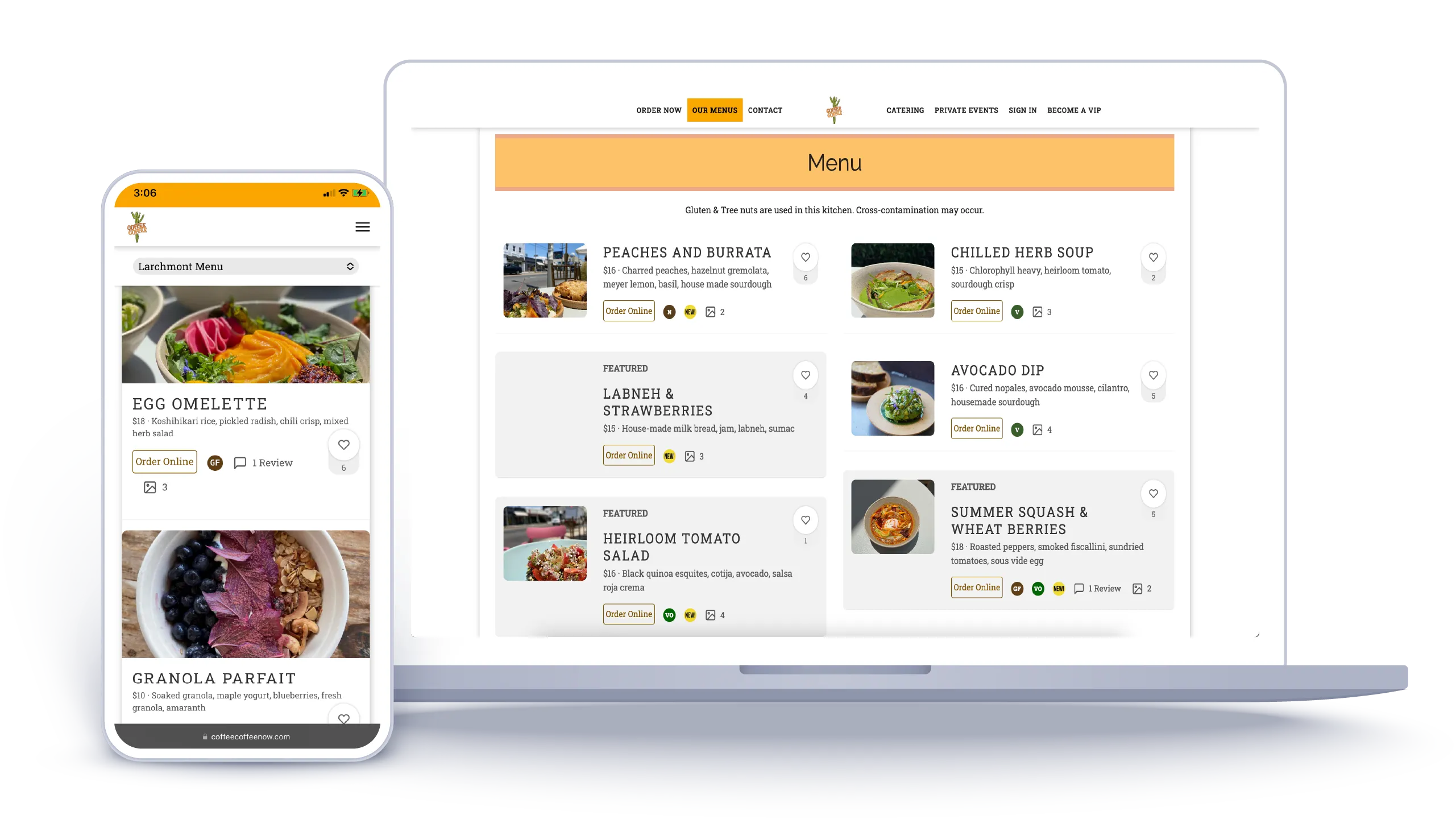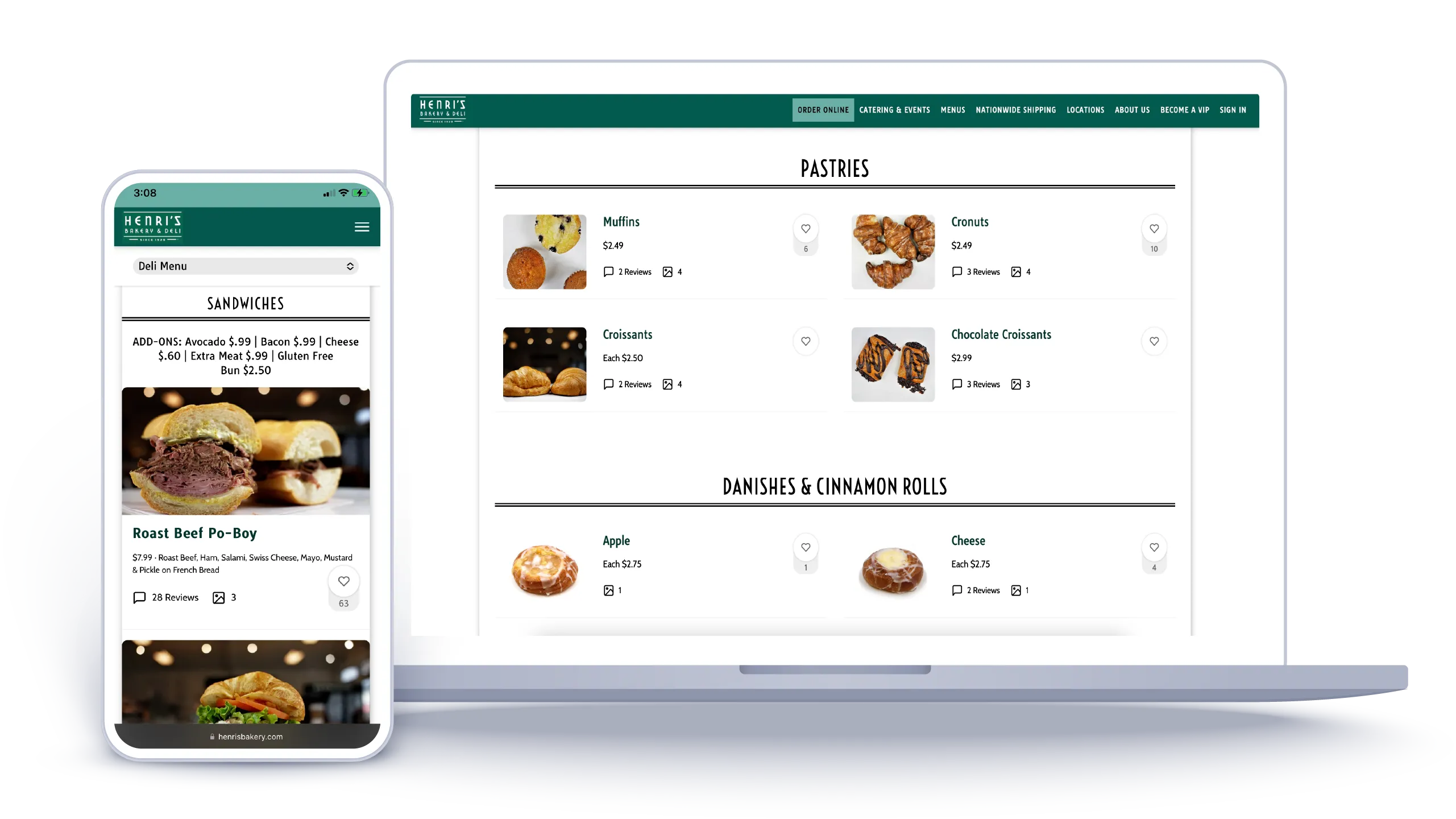9.17.2024
Brendan Sweeney, CEO and Co-founder of Popmenu, billed as the only restaurant marketing platform that increases business automatically, across digital channels, didn’t set out to build just another restaurant technology solution. He was driven by a simple yet powerful frustration: the lack of visually engaging and easily accessible information about restaurants in a digital world. Tired of encountering text-heavy PDF menus and having to scour third-party platforms for basic details, Sweeney envisioned a solution that would empower restaurants to tell their stories effectively and connect with customers in a more meaningful way. This vision, born from personal experience and a deep understanding of both consumer behavior and restaurant pain points, led to the creation of Popmenu. The company has since grown from a simple interactive menu concept to a comprehensive, guest-facing platform used by over 10,000 restaurants worldwide.
In this Spotlight Interview, Sweeney shares his insights on the challenges facing restaurant operators today, the importance of consistent marketing, and how AI-powered solutions are transforming the way restaurants engage with their customers. With a focus on practicality, data-driven insights, and a genuine passion for the restaurant industry, Sweeney offers valuable advice for operators seeking to navigate the ever-evolving landscape of digital marketing.
You talk to restaurant operators every day. What is the No. 1 thing keeping them up at night right now?
The No. 1 thing is the economy itself. In a recent Popmenu study, more than 80% of restaurant operators said the market is the toughest it’s been since the pandemic and that they have to compete much harder for every guest this year. Although inflation has dropped significantly from its peak a couple years ago, lingering effects have tempered consumer purchasing activity. On average, consumers spend 30% of their monthly food budget on restaurants—a decent number, but it’s down from 40% in 2022.
Competitive pressure has come to a head. Before, restaurants could pass on increasing operating costs to the consumer. Now, that’s plateaued. Operators are trying to figure out how to get more guests in the door while controlling spend, which is easier said than done.
What do restaurants who seem to be faring better have in common?
We see a bifurcation between restaurants who are doing well and growing, and those who are struggling to keep the lights on. Different factors come into play, but the main driver of that bifurcation is consistent marketing. Getting in front of your fans and potential fans as much as possible makes a huge difference in financial outcomes.

How is technology helping with consistency in outreach to guests?
The math is simple: reach more people, more often and your orders grow. Technology can help you do that automatically. At Popmenu, we start with an interactive menu that features photos and reviews on every dish. Each dish is treated as a separate page for Google to index, so when someone searches for “restaurants near me,” you rank higher in results and drive more traffic to your website. Once a consumer visits, built-in prompts encourage the consumer to sign up to join the restaurant’s VIP list, place an online order, “like” a dish, and more. The platform builds a profile on their preferences and automatically sends personalized messages based on what they like. Our open rates and click-through rates are double the national average because they are timely and tailored.

Last year, you launched a marketing tool that is powered by artificial intelligence. How does it work and what results have you seen?
When we ask restaurant operators about their biggest marketing challenges, we typically hear two things: “I don’t have time” and “I don’t know what to say.”
Our AI Marketing solution automatically builds a full month of emails, texts, and social posts for restaurants that are based on their dishes, reviews, specials, events, and more. The content is unique to each restaurant, reflecting the brand and specific location, vs. the generic content other tools deliver. Ten days before the month, operators receive the calendar for review. They can easily approve or edit content, choose a different topic, and schedule their posts. They essentially become the editor-in-chief.
Fado Pub & Kitchen used to take 4 or 5 days to create marketing content each month. Now, it takes them 2 hours. Ruby’s Jamaican Kitchen used to average around $2,000 in marketing-driven revenue each month. After launching AI Marketing, that revenue jumped to over $6,300 in 30 days and then doubled from there.
It’s great to see how AI Marketing evolved over one year and how it helps restaurants in a way that puts no burden on them. It’s creating a ton of impressions and a ton of impact.

How does Popmenu differentiate AI offerings from others on the market?
First and foremost, every action we recommend is rooted in data—detailed data we know about each restaurant plus data from billions of guest interactions in our platform. More than 30 million people come to our restaurant sites every month. Over a billion emails and texts have been sent through our platform. We know what works and apply that to our tools—that’s why the results from AI Marketing have been so strong.
Operators are able to track performance of campaigns in real time, including audience reach, sales, top-performing messages, top-selling items, and more.
Popmenu’s R&D team was lucky enough to have two leads with a Machine Learning Master’s from Georgia Tech in the mix, allowing us to incorporate AI into our platform very early on, so we were in an opportune position when generative tools like ChatGPT showed up. We’ve been able to build past the vanguard of the industry to make marketing easier and more effective.

You also recommend that restaurants use their phone for marketing. Can you give an example?
Three years ago, Popmenu launched AI phone answering, which fields calls 24/7 with custom responses and sends links for orders and reservations. We’ve answered over 8 million calls and saved restaurants over 70,000 hours to date. Kapow Noodle Bar, for example, answered over 89,000 calls and generated an estimated $1.6 million through links sent. One of the recommendations we make to restaurant operators is to incorporate specials, new dishes, and events in custom greetings and responses, so they’re always giving guests another reason to visit or order.
What advice would you give restaurants operators when it comes to marketing?
Don’t worry about being perfect, getting the message just right. It’s more important to put photos of your dishes and drinks in front of hungry guests on a regular basis. You can do that through automation.
We love restaurants and we want to see them succeed. We know tech has a multiplying effect when it comes to revenue. We created a free playbook with marketing tips and examples to help restaurants grow business online and on-prem. Check it out. Whether you use Popmenu or another solution, reach out to guests often. They want to hear from you.





